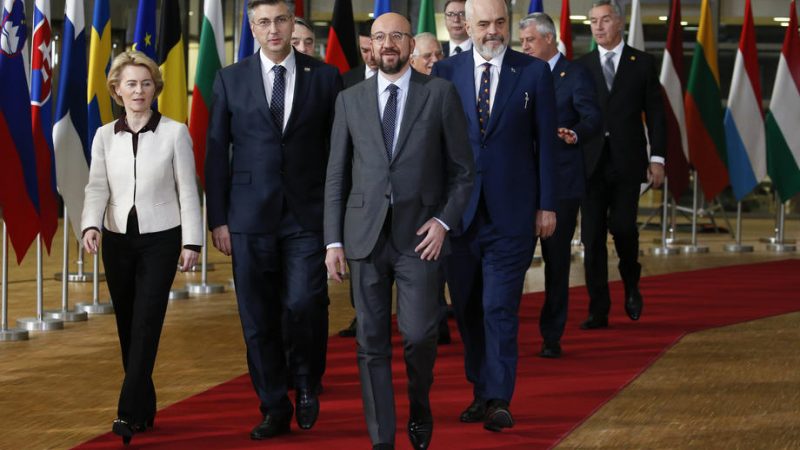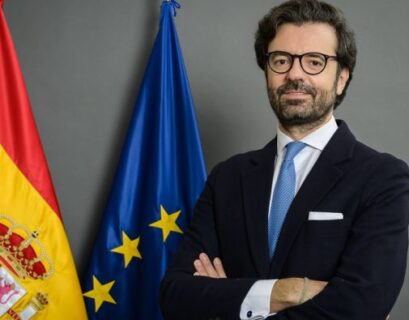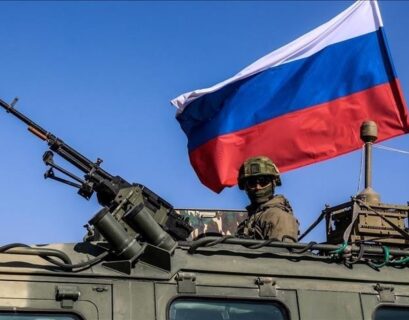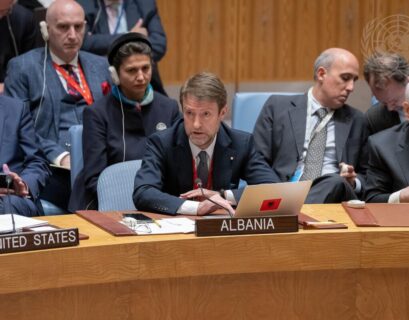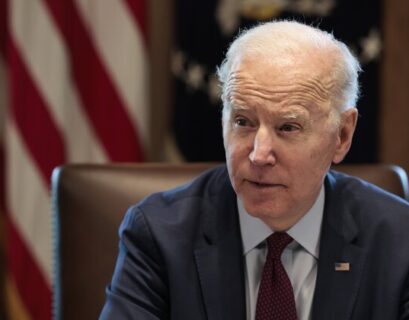By George A. Papandreou
Almost 20 years ago, in 2003, the European future of the Western Balkans looked secure: The European Council had adopted the Thessaloniki Agenda. This was a new and comprehensive roadmap, developed with concrete benchmarks, to safely guide the countries of the region to European Union membership.
The prospect of membership in a common family of European values provided enthusiasm and the impetus for change in these countries. It also brought hope that peace finally would be embedded – replacing conflict – and that democratic rule of law would reign – replacing authoritarianism, persecution of minorities and human rights violations. Prosperity would be the common goal uniting former foes in a beautiful kaleidoscope of ethnic diversity and traditions. This vision was to bring closure to the Balkan tragedy of the 1990s.
Since then the EU has done too little, too late. While Slovenia became an EU member in 2004, Croatia was the last of the region to be accepted, in 2013. And although Serbia and Montenegro have started accession negotiations, and Albania and North Macedonia have received the green light to begin negotiations, no starting date for them has been announced.
The consequence is that this vision is losing its shine. In its place nationalism has resurfaced with a renewed assertiveness. This trend in not exclusive to the Balkans. A resurgence of nationalistic and xenophobic sentiment is found in many corners of Europe, if not the world, possibly due to similar reasons: the failure of global cooperation to effectively deal with issues of inequality and social protection, population movements, health and environmental crises.
However, there is an important difference in the Western Balkans. The wounds of bloody conflict are fresh. And reverting to nationalism and cynical transactional foreign relations, an easy task for demagogues, risks reopening these wounds and conflicts.
It is no wonder we are also seeing a new geopoliticization in the region. As the prospects of EU membership pale it is understandable that regional actors are looking for new alliances, support and investment. This cannot be condemned in and of itself. Whether it is Russia or China or others such as players from the Middle East, building new ties is part of geopolitics. But as a region we will soon see competing proxy alliances that could further exacerbate divisions and conflicts. It is also tempting to stray from the European path in favor of going it alone (the UK did) in the hope of better and quicker (particularly) economic results.
But beyond the fragility of these economies, now further burdened by the pandemic, we may also see the values of European democracy severely challenged, and a vision of a unified Balkans around these values undermined.
The EU therefore needs to understand that nothing can be taken for granted.
Two non-papers have been circulating during recent weeks: the “Slovenian non-paper” and the “Franco-German non-paper.” They seem to underestimate the dangers and may open Pandora’s box once more in the Balkans.
The authors of these seem to be imbued with a frustration concerning the chronic problems the breakup of Yugoslavia has brought upon the region. However, the danger with these widely circulated non-papers is that they want to “finalize the breakup of former Yugoslavia.” What do they mean?
In essence, they propose finalizing the breakup of former Yugoslavia through new border changes and land swaps. In fact they want to continue where the Yugoslav wars stopped and further promote mono-ethnic or “ethnically pure” states.
But this was the core problem of the breakup. Ethnically pure states are a dystopia. They do not exist in reality. And when Yugoslavia did break up in the 90s ethnic cleansing was partially accomplished with massacres and bloodbaths.
Finishing up this job is the philosophy behind these non-papers.
Needless to say, these scenarios are a recipe for disaster as, if taken seriously, they could destroy all that we have accomplished together, with respect to human and democratic rights in the region since the mid-90s.
This is not the first time that the idea of territorial changes in the region has been discussed. During summer 2018, the idea of land swaps between Kosovo and Serbia was discussed among some circles in Brussels and in Washington. Strong reactions from different sides halted all discussion – but it seems only for a while.
One truly wonders how leaders in the EU could sign off on such a proposal. Is the solution to our conflicts a redrawing of borders, along ethnic lines? This “final solution” caters to the worst of populistic xenophobia. It undermines any sense of conviviality in the Balkan Peninsula and carries dire overtones for diversity and tolerance in an ethnically diverse European Union.
We in the EU have the collective responsibility to speak out loudly and clearly and put an end to this debate.
One must realize that it is in fact the inertia of the EU in the region, since 2013, that has permitted these deadly scenarios to resurface.
The EU may still be the major trading partner of the Western Balkans with more that 75% of the total trade. However, the recurring debate on territorial changes and land swaps in the Western Balkans undermines the stability and the future of a tormented region which wishes to move beyond these conflicts.
We in the EU can no longer act as sleepwalkers, passively waiting for violence to erupt. Shortsighted and self-serving strategies of some member-states, illiberal and authoritarian approaches, and petty political calculations to muster support through fearmongering and xenophobia cannot be the way forward to the Balkans’ unfinished business.
A concerted and dynamic approach toward the region, based on the Thessaloniki decisions of 2003, is once more needed. One that renews a concrete strategy for the Balkans, a region in its inner courtyard, which should never again be drawn into conflict.
We therefore propose a recalibration of our policy and a renewed Western Balkan strategy.
This could take place as an “EU Conference on the Western Balkans” in order to openly discuss the new challenges for the region and map out a comprehensive plan with the governments of the region.
Rather than touting the chimera of “ethnically clean” societies, we need to reignite the vision of a Balkan Peninsula united through European values and democratic traditions, those that inspire us to live together, respecting and reveling in the beauty of our diversity.
The peoples of the Balkans would welcome this approach, if the EU once again uses its potential, steps up to the challenge and leads with its values.
George A. Papandreou, former prime minister of Greece, is president of Socialist International.


